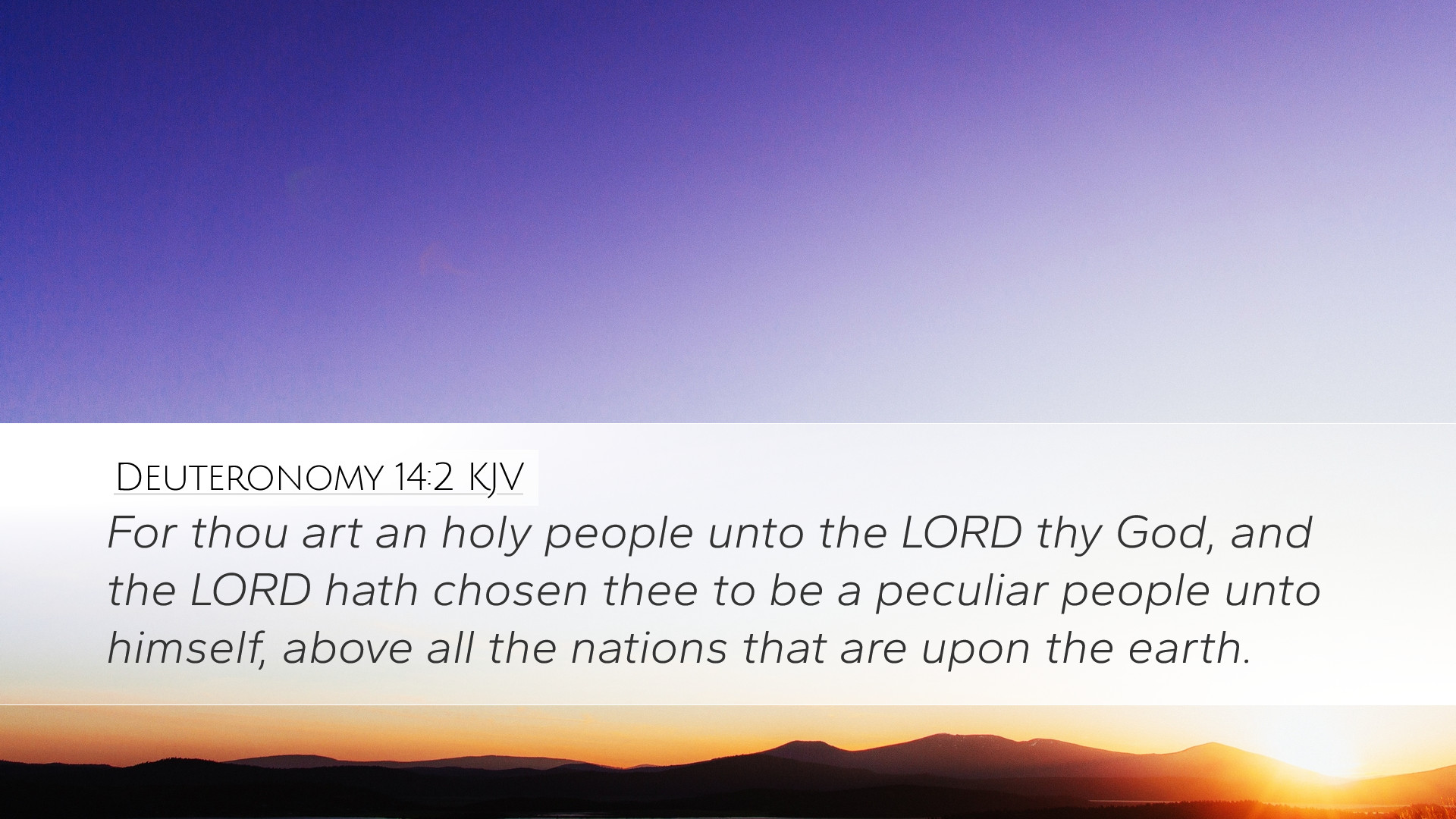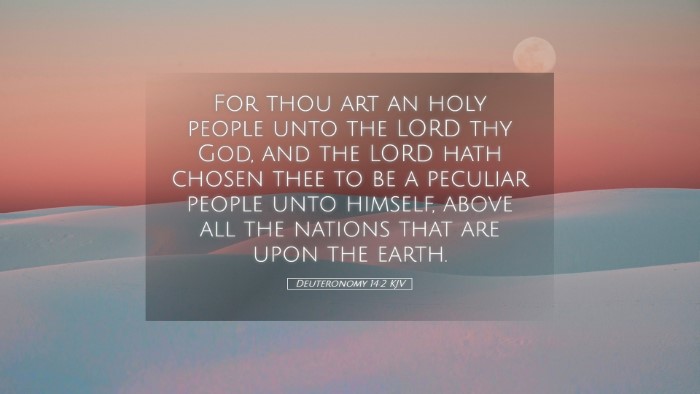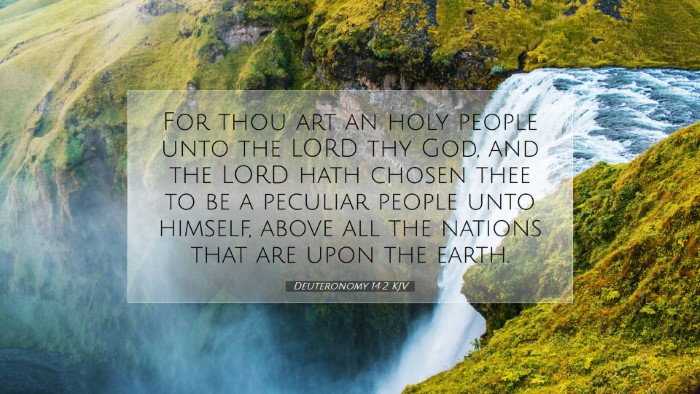Commentary on Deuteronomy 14:2
Verse Text: "For thou art an holy people unto the LORD thy God, and the LORD hath chosen thee to be a peculiar people unto himself, above all the nations that are upon the earth."
Introduction
The verse Deuteronomy 14:2 is pivotal in understanding the identity and calling of the Israelite people as God's chosen nation. It highlights their distinctiveness and holiness, setting the stage for the laws and practices that would guide their worship and daily lives. In exploring this verse, we find insights that speak to God's covenant relationship with His people, their moral obligation to live out this identity, and the implications for Christian believers today.
Contextual Analysis
The book of Deuteronomy serves as Moses' address to the Israelites as they prepare to enter the Promised Land. The reiteration of the Law is aimed at establishing their identity as a holy people and guiding them in living in accordance with God's commands. This verse fits within the broader theme of holiness and separation that permeates the Old Testament.
- Moses’ Role: As the mediator of the covenant, Moses emphasizes the sacredness of Israel's calling.
- The Holiness of God: The concept of holiness is central to understanding God’s nature and the response required from His people.
Insights from Public Domain Commentaries
Various commentators shed light on the multifaceted implications of being a "holy people" as conveyed in this verse.
Matthew Henry
Henry notes that God claims Israel as His possession, indicating a special relationship that carries both privilege and responsibility. He emphasizes that holiness is not simply about ritual purity but involves a commitment to live according to God’s laws.
Albert Barnes
Barnes elaborates on the idea of being "peculiar" or special. He argues that this distinction is meant to reflect God's character to the nations surrounding Israel. Their conduct is to testify to the holiness of God, promoting a lifestyle of obedience to His commandments.
Adam Clarke
Clarke expands on the implications of God's choice. He highlights the transformative potential of this identity. Clarke argues that being chosen mandates a rejection of practices of surrounding nations that do not honor God, positing that their uniqueness should influence their ethical and moral decisions.
Theological Implications
The theological significance of Deuteronomy 14:2 extends beyond ancient Israel. Understanding the principles of being a holy nation has implications for modern faith communities:
- Covenant Relationship: The notion of being chosen sets a foundation for understanding the biblical narrative of redemption. It invites discussions on how God's choice of Israel prefigures Christ's relationship with the Church.
- Ethical Living: The call to holiness necessitates ethical living that reflects the character of God. There is an expectation that believers today engage in practices that confirm their faith.
- Mission and Witness: Just as Israel was to serve as a light to the nations, the Church is called to be a witness of God's grace and truth in a world that often contradicts biblical values.
Conclusion
Deuteronomy 14:2 encapsulates a profound truth about God's relationship with His people. The call to be holy and peculiar is a challenge that resonates through the ages, inviting believers to embody a distinct lifestyle that honors God. By reflecting on this verse, pastors, students, theologians, and Bible scholars are encouraged to explore the implications of this divine calling in their lives and communities.


